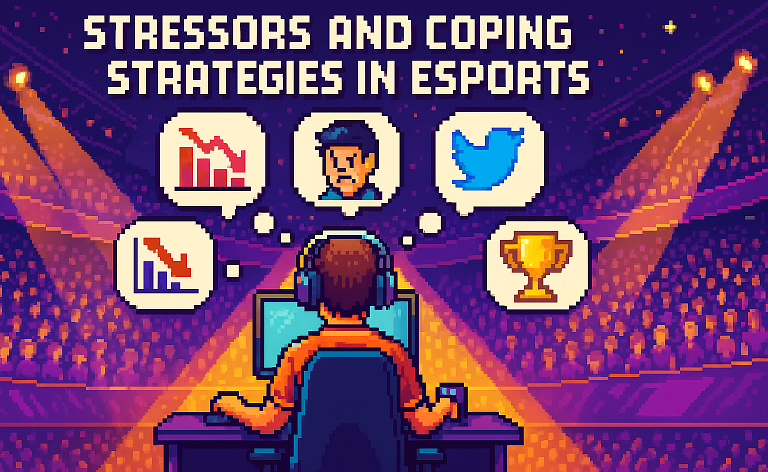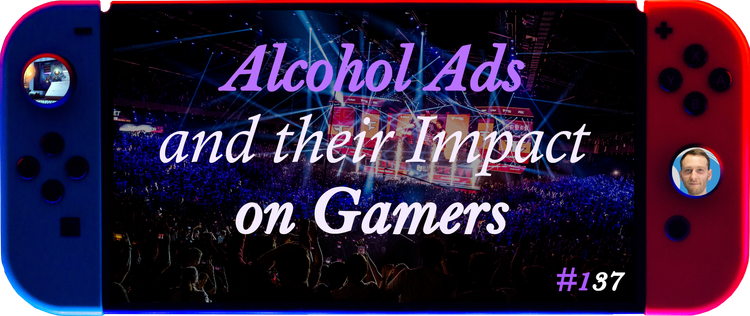How Pro Gamers Cope with Stress — Lessons from LoL Pros

Competitive gaming is a stressful activity. In a recent study, it was found that "elite LoL athletes experienced a small number of reoccurring stressors over an 87-day competitive period." [1] What are the stressors players experience? And what are their strategies to cope with them?
• Professional players are under immense stress due to their careers.
• To cope with stress, there are common categories of strategies one can use: problem-, emotion-, and avoidance coping.
• During competitions, players experienced more stressors compared to team and solo training. Specifically, 79% of stressors fell into the two categories performance (44%) and teammates (35%).
• Problem-focused strategies were employed the most by players, and also perceived as effective.
• Dr. Leis' episode goes into more detail on stress and coping in esports, while also giving tips on how to deal with stress yourself.
😰 Why Understanding Stress Matters in Esports
Imagine being a CS pro, walking up on stage every other week, having to perform in front of thousands of people watching you. And that's just during the tournament, you also have to constantly train, improve, and balance life while traveling on a constant basis. I'd imagine that's exciting and stressful at the same time.
This is where coping strategies come into play—ways to deal with stress. Coping strategies are commonly grouped into three categories:
- Problem-focused coping (PFC): strategies that aim to alter stressful situations.
- Emotion-focused coping (EFC): strategies that regulate the emotions caused by a stressful situation.
- Avoidance coping (AC): cognitive or physical efforts to disengage from the situation causing stress.
Research has already identified things that cause progamers stress. For instance, internal stressors (i.e., communication issues and performance expectations), and external stressors (i.e., social media and an audience watching). However, these insights stem mostly from interviews and not a good representation of how stressors and coping changes over time and across different situations (training vs. competition). That's where today's study highlight comes in.
The researchers had six professional players report on questions regarding stressors, stress appraisal, coping, and the effectiveness of coping using a diary over a period of 10 weeks during a LoL regular season.
📊 The Numbers: What the Data Reveals
"Competitive diaries... had significantly more average reported stressors than team training... and solo training... diaries..." [1]
This makes sense, as it's easy to imagine how competitive situations create more stressful moments. Another finding also makes sense, which is that stressors from competitive matches were perceived by the players as more intense, compared to the team and solo trainings.
What's also interesting is that 55% of all reported stressors were made up by the five stressors: general performance (21%), outcome of the match (17%), performance during critical moments (9%), and mistakes of teammates (8%). On a more abstract level, performance and teammates accounted for 79% of all stressors reported, with 44% and 35% respectively.
"Elite LoL athletes, when coping with stressors, employed more PFC strategies than EFC and AC." [1]
This means that players coped with stress by doing things such as seeking support (teammates, coaches, friends and family) or engage in problem-solving conversations. However, what exactly players did was not mentioned in the study.
"In both competitive and training environments, PFC and EFC strategies were rated as being more effective than AC strategies." [1]
It's one thing to know what is just most often, but to know if something is also effective is great. It appears that both, PFC and EFC strategies are effective do deal with stress—at least for professional players.
📈 How You Can Use These Insights in Your Own Games
First, you should be aware of the things that cause you stress. Second, employing PFC and EFC strategies might be something you want to try. For an interesting insight, Dr. Leis wrote a guest episode not long ago, going over—in more detail—about what we know and don't know about stress and coping in esports. Furthermore, he highlights questions you can ask yourself that will help you to reflect on the problem and possible solutions. Give it a read if you haven't yet.
Stay stress-free, everyone. Cheers,
Christian 🙂







